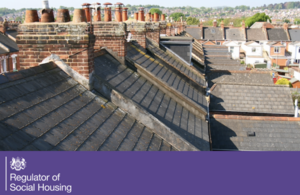RSH sets out key risks facing the social housing sector
The Sector Risk Profile shows that providers are grappling with a range of significant external economic pressures.

The Regulator of Social Housing has today (14 November 2023) set out its view of the key risks and challenges facing the social housing sector.
RSH’s Sector Risk Profile shows that providers are grappling with a range of significant external pressures. This includes high inflation, higher borrowing costs, difficulties in accessing skilled labour and a declining housing market which threatens to dampen income from development sales.
These headwinds continue to weaken the sector’s financial capacity and put pressure on providers’ business plans. Against this very challenging backdrop, the sector is making record investment in existing homes to meet quality and building safety commitments, as well as building much-needed new homes. Providers are also working towards longer-term net zero targets by improving the energy efficiency of their homes.
Boards will need to make difficult trade-offs to manage these risks while ensuring their organisations remain viable and continue to deliver strategic objectives. To deliver new homes and invest in existing ones providers must remain viable and able to raise new finance, and they must be ready to implement mitigations and maintain appropriate headroom to manage further potential shocks.
Some of the key challenges identified in RSH’s report are also relevant to lead councillors at local authorities which own social homes.
All social housing providers need to get ready for RSH’s stronger consumer regulation. The Social Housing Regulation Act, which received Royal Assent in July 2023, places a strong focus on the quality of social housing and the services landlords provide to tenants. RSH will have new powers to hold landlords to account from next April, including a new programme of inspections, and it recently consulted on a new set of consumer standards that all providers will need to meet.
Providers must prioritise the safety of their tenants and ensure they hold accurate, up-to-date and robust stock data that assesses the presence of serious hazards in tenants’ homes, including damp and mould.
Jonathan Walters, Deputy Chief Executive at RSH, said:
Social housing providers are navigating difficult economic terrain. Boards must be clear-eyed and strategic about the risks they face, and deploy appropriate mitigations when needed. They must also make sure they are ready for our stronger programme of consumer regulation from next April.
Providers have a core role of providing safe and decent homes for tenants and building new homes for people who need them. It is vital that they continue to meet our regulatory standards as they do this.
Notes to editors
- The Sector Risk Profile sets out the regulator’s view of the most significant risks to providers’ ongoing compliance with its regulatory standards. The report is aimed primarily at boards of private registered providers and, where relevant, the councillors forming the governing bodies of local authority registered providers.
- The Sector Risk Profile has a particular focus on risks to delivering the outcomes required by RSH’s economic standards. RSH’s annual consumer regulation review provides examples from recent casework that providers can learn from to help strengthen their approach.
- For press office contact details, see our media enquiries page. For general queries, please email enquiries@rsh.gov.uk or call 0300 124 5225.
- The Regulator of Social Housing promotes a viable, efficient and well-governed social housing sector able to deliver and maintain homes of appropriate quality that meet a range of needs. It does this by undertaking robust economic regulation focusing on governance, financial viability and value for money that maintains lender confidence and protects the taxpayer. It also sets consumer standards and may take action if these standards are breached and there is a significant risk of serious detriment to tenants or potential tenants.